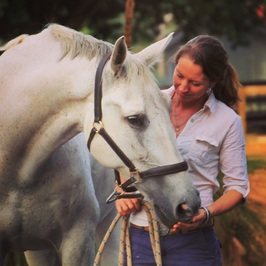
Water always runs to the deepest point, to where the land is lowest. For me, the same is true of writing. The words fall into the places that lie deep beneath. I think of them as the 2am places. The ones you usually hide with conversation and movement. The voice in your head that you hear because the only other sound is the hum of the fridge and your own quiet footsteps through a sleeping house.
For me this place is no aquifer. Words do not gush out onto the page. It is just a thin seam of honesty that can occasionally be mined for words.
Sometimes I dream in words, in loops and strands across a page. My own handwriting in blue ink. But by morning, like dew, the words have gone.
The process of drilling down into the place where the words lie, though always hard and sometimes even painful, is also occasionally illuminating. If the events that are written about are not autobiographical, the emotions surrounding them most certainly are.
The passage in my novel where Frank describes his grandfather's love of horses is, in some ways, the most revealingly autobiographical:
For me this place is no aquifer. Words do not gush out onto the page. It is just a thin seam of honesty that can occasionally be mined for words.
Sometimes I dream in words, in loops and strands across a page. My own handwriting in blue ink. But by morning, like dew, the words have gone.
The process of drilling down into the place where the words lie, though always hard and sometimes even painful, is also occasionally illuminating. If the events that are written about are not autobiographical, the emotions surrounding them most certainly are.
The passage in my novel where Frank describes his grandfather's love of horses is, in some ways, the most revealingly autobiographical:
"Frank told me that his grandfather came home from the war with a limp and a love of horses that he would never lose. As he got older his joints stiffened, his legs would neither bend nor straighten and he was unable to ride. But he would still walk amongst the small herd of horses in the paddock, feeling the heat of their dusty sides, running his crooked hands along their backs and breathing in the grassy, sweet smell of their bodies as they bumped against each other and nudged at his pockets with their soft, blunt muzzles. In the slow, amber evenings he would watch them at the water trough jostling like fretful siblings, stamping the dry ground and lifting clouds of dust that caught the lowering rays of the sun and tipped the edges of their bodies with gold.
Frank said that Granddad never forgave himself for ageing. That he was happiest with the reins in his hands, the smell of horse sweat seeping through woollen saddle blankets and the rhythm of shod hooves crunching gravel. Over time he grew less able to care for them and he let the little herd dwindle as they grew old and died. And they did, one by one, slowly and peacefully in the place that they had played out their whole lives. He folded their long-legged bodies into holes dug out of the hard clay and mounded the red soil above them. From the house he could see them, seven miniature hills fringed with weeds and the long, stiff stalks of wild oats. Each one he buried took a little more of him into the ground with them and the bridles in the shed became unrecognisable under their mantle of cobwebs."
To me, these words are premptively elegaic. Beauty is temporary. Friendship, youth, conversation, a good horse – these things are fleeting. The golden moments that make a life.
Frank said that Granddad never forgave himself for ageing. That he was happiest with the reins in his hands, the smell of horse sweat seeping through woollen saddle blankets and the rhythm of shod hooves crunching gravel. Over time he grew less able to care for them and he let the little herd dwindle as they grew old and died. And they did, one by one, slowly and peacefully in the place that they had played out their whole lives. He folded their long-legged bodies into holes dug out of the hard clay and mounded the red soil above them. From the house he could see them, seven miniature hills fringed with weeds and the long, stiff stalks of wild oats. Each one he buried took a little more of him into the ground with them and the bridles in the shed became unrecognisable under their mantle of cobwebs."
To me, these words are premptively elegaic. Beauty is temporary. Friendship, youth, conversation, a good horse – these things are fleeting. The golden moments that make a life.

 RSS Feed
RSS Feed
